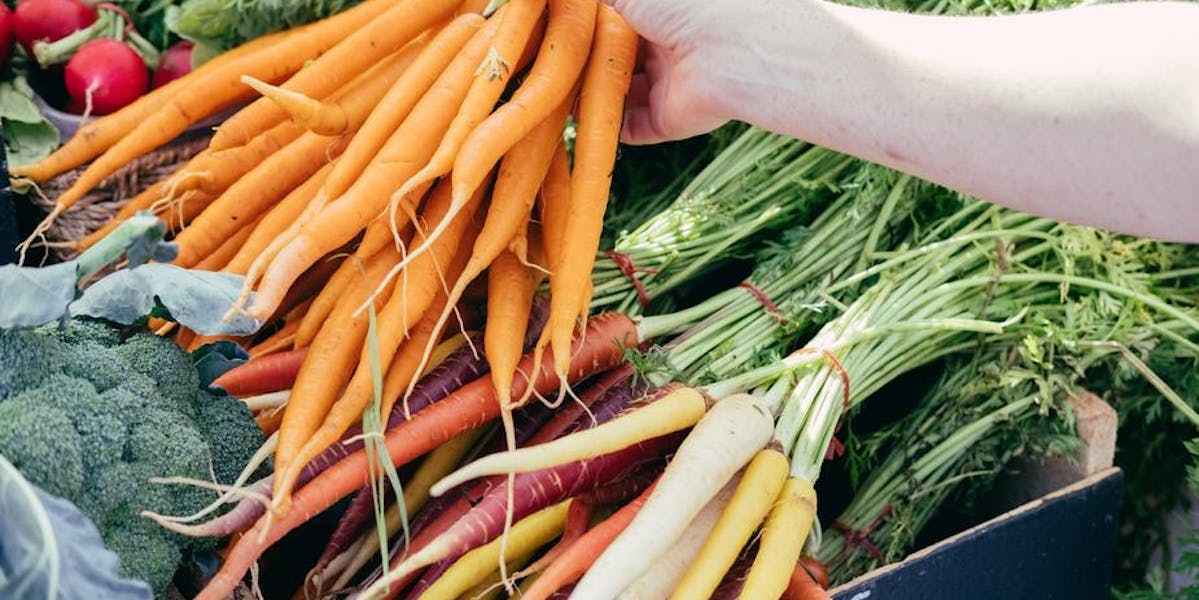Lifestyle
Plates For The Planet: A Beginner’s Guide To Seasonal Eating In The UK
by Laura Barns
5min read
Heard the phrase ‘seasonal eating’ but are a bit unsure of what it means, and why it’s important? Here’s a complete guide to help get you started.
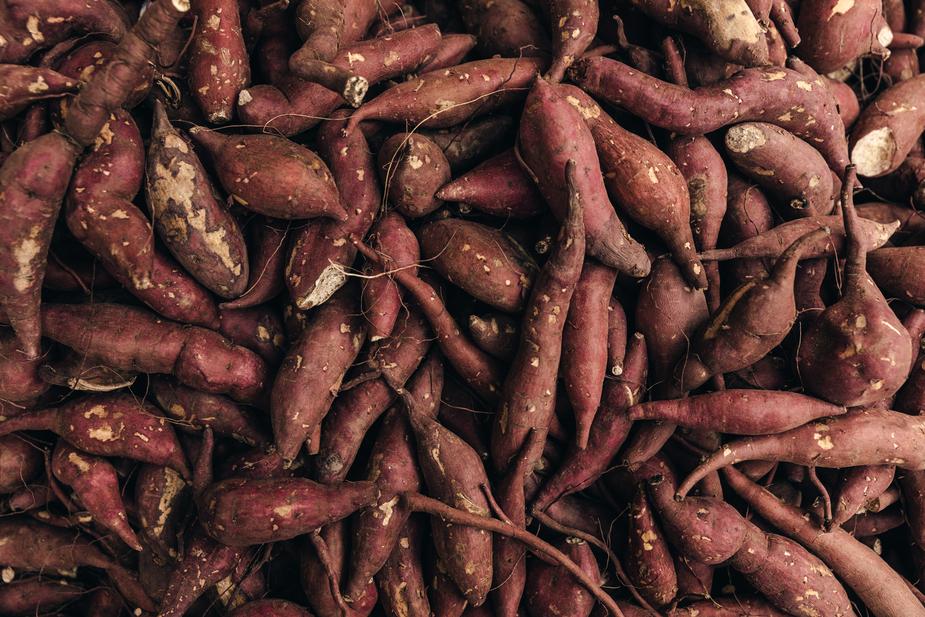
What does it mean to ‘eat seasonally’?
The idea of eating seasonally stemmed from society’s passion to reconnect to the patterns of nature. Seasonal eating means eating food fairly swiftly after it is harvested in the local area.
The definition of ‘local’ can vary, but it generally means food grown in your country or from very close international countries. Local can, however, also mean hyper-local, and there are a growing number of shops and restaurants that source the majority of their ingredients from within a few miles of their business. This hyper-local sourcing also indicates hyper-seasonal, as local food will vary considerably depending on the seasons.
Why is seasonal eating important?
When you opt for seasonal food you are helping to lessen the demand for out of season produce, which needs to be shipped or transported from other countries. And it also means that you’re also supporting local farming. This means less storing of products (in refrigerators, so less energy), less transportation, fewer artificial hothouses, and fewer fuel emissions.
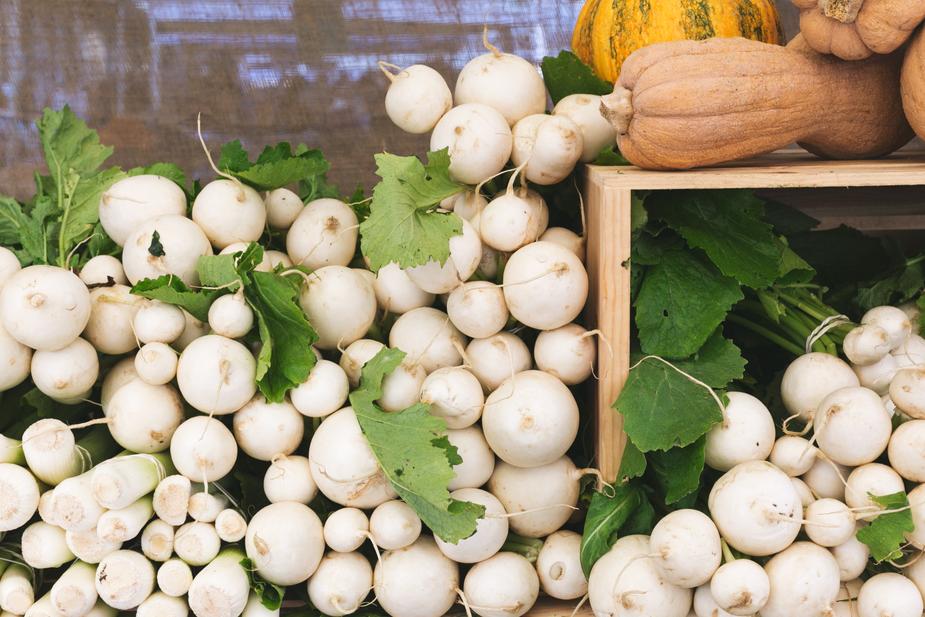
The benefits of seasonal eating:
- It’s tastier: Food grown and harvested in season will taste riper, fresher and sweeter. And it won’t have to endure transportation, either.
- It’s cheaper: When there is a large crop of in-season produce, the cost of said produce goes down. If it’s in season, the product is also more likely to be produced locally, which pushes the cost down due to no need for large transportation or storage costs.
- It gives our bodies the nutrients it needs, when it needs them: In the winter we are provided with hearty winter vegetables for warm wholesome foods like soups and stews. In the summer, stone fruits provide us with extra beta-carotenes and other carotenoids that help to protect us against sun damage.
Tips for eating seasonally
Your local food market provides a great indicator of what’s in season, and as an added bonus you get the chance to chat with the communities that grew your food. No matter the time of year, food market produce is usually much fresher than what you’d find in the supermarket, as it’s often picked within the last 24 hours.
Likewise, food blogs tend to follow seasonal food trends, just like the markets and shops do. So if you’re wondering what’s in season and how you should cook it, spend some time perusing your favourite blogs and online magazines for inspiration. (Cough hello Planted, cough).
A season by season rundown of seasonal eating in the UK
Keen to get started? Here’s what to add to your plates each season to help!
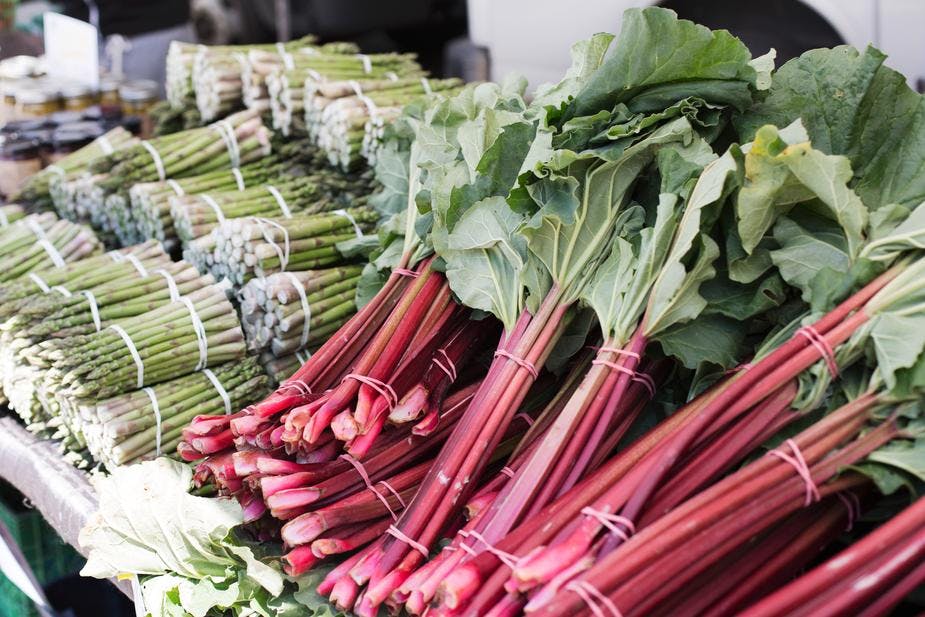
Spring
cauliflower, kale, leeks, purple sprouting broccoli, rhubarb, salsify, spinach, spring onions, swede, wild nettles, wild garlic, asparagus, basil, broccoli, chives, dill, jersey royal new potatoes, lettuce & salad leaves, new potatoes, purple sprouting broccoli, radishes, rhubarb, rocket, samphire, sorrel, spinach, spring onions, watercress, wild nettles, wild garlic, asparagus, basil
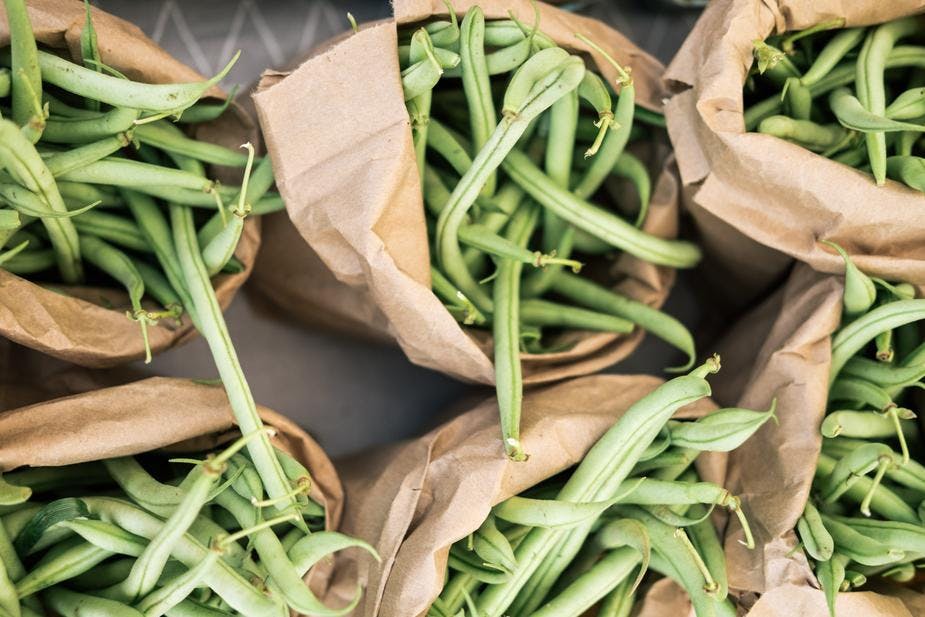
Summer
artichoke, aubergine, basil, beetroot, bilberries, blackcurrants, blueberries, broad beans, broccoli, carrots, chard, chervil, chillies, cherries, chives, coriander, courgettes, dill, elderflower, fennel, french beans, garlic, gooseberries, greengages, jersey royal new potatoes, kohlrabi, lettuce & salad leaves, mangetout, mint, nasturtium, new potatoes, onions, oregano, pak choi, parsley, peas, radishes, rocket, rosemary, runner beans, sage, samphire, shallots, sorrel, spinach, spring onions, strawberries, tarragon, thyme, tomatoes, turnips, watercress, wild nettles
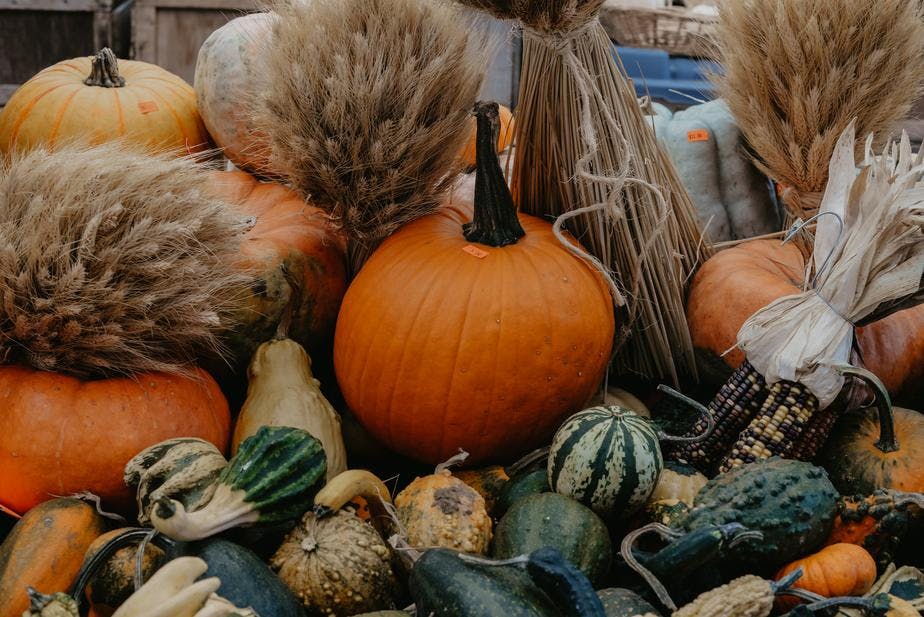
Autumn
apples, artichoke, aubergine, beetroot, blackberries, broccoli, butternut squash, carrots, celeriac, celery, chard, chestnuts, chillies, chives, cob nuts, coriander, courgettes, cucumber, damsons, elderberries, fennel, french beans, garlic, horseradish, kale, kohlrabi, leeks, lettuce & salad leaves, mangetout, marrow, mint, onions, oregano, pak choi, parsley, pears, peppers, plums, potatoes, pumpkin, radishes, raspberries, redcurrants, rocket, rosemary, runner beans, sage, shallots, sorrel, spring onions, sweetcorn, thyme, tomatoes, turnips, watercress, wild mushrooms
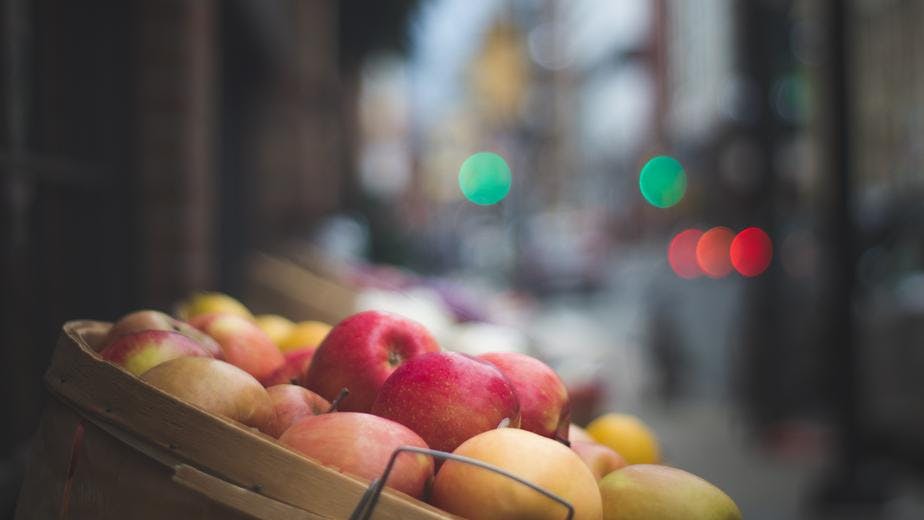
Winter
apples, artichoke, beetroot, bilberries, blackberries, broccoli, butternut squash, celeriac, celery, chestnuts, chicory, chives, chillies, cob nuts, elderberries, fennel, garlic, horseradish, Jerusalem artichoke, kale, kohlrabi, leeks, lettuce, marrow, medlar, parsley, parsnips, pears, potatoes, pumpkin, quince, radishes, rocket, rosemary, runner beans, sage, salsify, shallots, sorrel, squashes, swede, sweetcorn, thyme, tomatoes, turnips, watercress, wild mushrooms
Any questions or tips for eating seasonally? Share away in the comments.
By Laura Barns
Laura is our Copywriter, who is obsessed with the Hearty Roots Stew (and has been known to eat a double serve for lunch on more than one occasion). On her day off you’ll find her walking her puppy Ralph, stopping off at bookshops and cocktail bars along the way.
Let us take care of dinner
We help to make eating more plants easy and delicious. Fancy letting us take care of dinner? Check out our delicious meals here.
Shop now
